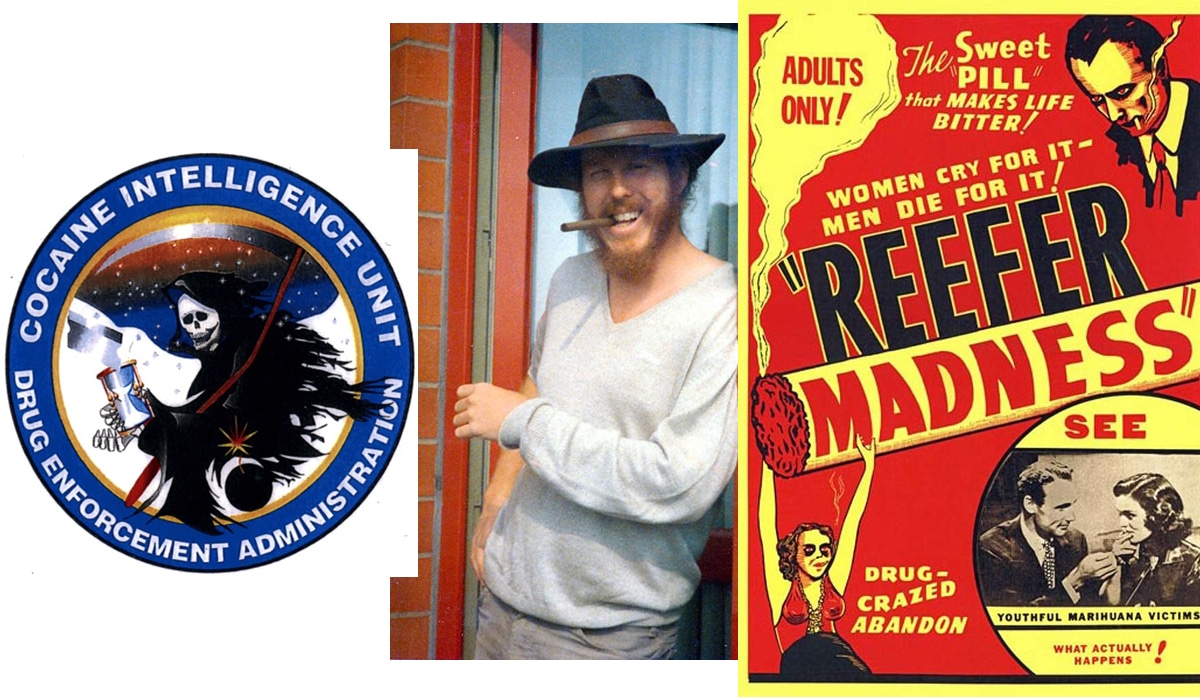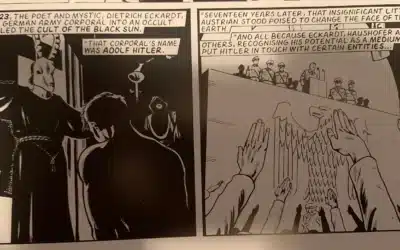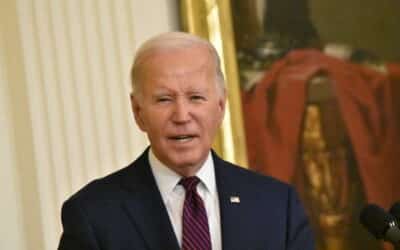Forty years ago this week, the Los Angeles Herald Examiner published my first attack on the federal drug war. The previous year, the Reagan administration unleashed its “Just Say No” program, vilifying anyone who smoked a joint, sniffed the wrong powder, or used non-approved hallucinogens. I was mortified to see Ronald Reagan—who was elected on a promise to get “government off your backs”—double-cross his supporters with what morphed into the most intrusive scheme in American history.
Like kids everywhere in the 1970s, I laughed at the 1936 “Reefer Madness” movie in my high school health class. I’d occasionally smoked marijuana but hadn’t felt compelled to burn down any orphanages afterwards. When Reagan went on the antidrug warpath, I was “laying for him,” as Mark Twain would say.
The Herald Examiner was a conservative leaning paper so I slanted my argument accordingly: “Many heavy marijuana users voted Republican in 1982, so there is no proof that it causes irreparable brain damage.” I pointed out that legalizing and taxing marijuana could raise enough money to pay for the MX-missile program that Reagan championed. (Pentagon boondoggles were much cheaper back then.) Ending marijuana prohibition would put hundreds of lawyers out of work, I cheerily noted. Reagan’s drug crackdown was playing to a culture war theme which I mocked in the final sentence of my piece: “Personally, I’m all in favor of locking up hippies, but we need to find a better reason.” The editor wisely deleted that last sentence before printing the article.
My attempts at humor were not universally appreciated. When I took the page from the Herald Examiner to a photocopy shop in uptown Washington, the cranky old manager was outraged by the article’s headline: “Making Pot a Crime Is, Well, Un-American.” He railed about how drugs were destroying the nation and wagged his finger so hard he almost threw his shoulder out of joint. The real problem, he said, was troublemakers like me. I just grinned at him and found another copy shop.
Two years later, writing in The San Diego Union Tribune, I declared, “The only things drug laws achieve is to make drugs more dangerous, crime more prevalent, and government more obnoxious.” I scoffed: “If the FBI didn’t have a thousand agents chasing dope dealers, would the Soviets be having so much success stealing U.S. military secrets?” I also whacked the feds’ narcotic nitwittery in The Detroit News and other papers.
My pieces had as much impact on the drug war as bouncing a ping pong ball off the hull of a battleship. After the drug war became politically profitable, the number of drug offenders in prisons rose tenfold. More people were locked up for drug offenses than for violent crimes, and possessing trace amounts of cocaine was often punished with longer sentences than rape, murder, or child molesting.
In 1992, I headed to Guatemala to give a few speeches on perfidious U.S. protectionist policies. Outside of Guatemala City, I met farmers and small businessmen who explained to me how the U.S. drug war was ravaging their country. A Guatemalan banker told me that the DEA was involved in shooting down or forcing crash landings of small planes suspected of carrying drugs. A prominent Guatemalan politician told me, “If you criticize the Drug Enforcement Agency, you might lose your visa” and be banned from visiting the U.S.
Shortly after Bill Clinton’s inauguration in 1993, the The Washington Times published my report on Guatemala: “U.S. anti-drug activities are wrecking the environment, terrorizing the people, and subverting the market economies that the U.S. loves to champion.” U.S. aid was pouring into the coffers of military forces notorious for committing genocide against the Mayans and other minorities. I observed: “Giving the Guatemalan army more weapons to fight marijuana growers is like giving the Mafia bazookas to combat jaywalking in New York City.” Just in case I hadn’t riled up officialdom enough, I tossed in a closing line: “Exporting our drug war to Guatemala and other Latin American nations is Yankee Imperialism at its worst.”
Bingo: DEA chief Robert Bonner was enraged. “Columnist sprays tons of misinformation over your pages” was The Washington Times’ headline for his response. Bonner claimed that I had done “a great disservice to your readers” and declared, “We certainly are not behaving as if the ‘drug war gives us the right to impose martial law on foreign nations,’ as Mr. Bovard contends.” The DEA later became notorious for wreaking havoc throughout Central America. DEA was dousing Guatemala with Round-Up pesticides, but Bonner claimed that “adverse human health effects…are virtually nonexistent.” Turn on late night TV nowadays and you’ll see a torrent of ads soliciting class action claimants for American victims of Round-Up. And the massive U.S. aid for the Guatemalan military became a propellant for drug smuggling that was spearheaded by top generals and elite Special Forces units.
Writing about the drug war got me vilified from all sides. In early 1994, I pummeled DEA entrapment operations at Grateful Dead concerts in a Newsday article. My piece, headlined, “Narcs Should Let the Deadheads Be,” pointed out that “abusive federal prosecutions” were destroying far more lives than LSD, the DEA’s pretexts for witch hunts. One enraged antidrug zealot howled to Newsday: “Obviously, James Bovard sees the world through the same haze many deadheads do,” and I was to blame for the “crime problem in this country” because I opposed holding people “accountable for their actions.” Flipside, a fan of the band denounced me for “perpetuating false stereotypes of Deadheads,” including the notion that they tended to be “aging hippies.” As Joe Biden would say, “C’mon, man!”
Later that year, I began hammering and lampooning drug warriors for Playboy. A November 1994 piece blasted the use of drug courier profiles (later a favorite topic for social justice warriors). A December 1994 headlined, “Oops -You’re Dead! No-Knock Raids” helped put that proliferating atrocity on the national radar screen (followed by a 2000 update). I also flogged asset forfeiture abuses, the informant scourge (“Uncle Scam Wants You”), the prison industrial complex, and the perverse sentencing guidelines that made talking about drugs worse than murder. In a piece with an evergreen theme, I detailed how kinfolk of members of Congress and other powerful Washingtonians routinely received wrist slaps or had their drug charges dismissed (Senator John McCain’s wife was a prize example). And some folks think that type of favoritism only began with Hunter Biden…
At the end of the 1990s, I turned to American Spectator to thump Clinton’s program that was deluging hundreds of square miles in Colombia with deadly pesticides to suppress coca production. The program got some bad press when U.S.-funded crop dusters repeatedly fumigated school children, sickening many of the kids. Clinton administration officials trumpeted their drug war salvation mission at the same time the wife of the U.S. military commander in Colombia was convicted for smuggling kilos of cocaine to New York. Luis Alberto Moreno, Colombia’s ambassador to the U.S., attacked a piece I wrote for the The Baltimore Sun. Moreno claimed the Clinton aid package was carefully targeted and would “strengthen law enforcement institutions and help protect human rights.” Alas, some of the torrent of U.S. aid was diverted to “carry out spying operations and smear campaigns against Supreme Court justices,” crippling the nation’s judiciary that was exposing mass-murdering paramilitary groups allied to the governing regime.
During the George W. Bush administration, I jibed his drug czar for demonizing drug users in federally funded TV ads and portraying people who bought drugs as terrorist financiers threatening America with annihilation. Federal drug warriors arrested cancer patients who smoked marijuana to control chemo-induced nausea and busted doctors who gave suffering patients more pain killers than the DEA preferred. I ridiculed the federal vendetta against comedian Tommy Chong (and again here last year) who was sent to prison for selling bongs. Shortly after his arrest in 2003, Chong scoffed at the nationwide raids to seize drug paraphernalia: “I feel pretty sad, but it seems to be the only weapons of mass destruction they’ve found this year.”
After the Global War on Terror and Bush’s invasion of Iraq spiraled out of control, I shifted my focus away from the drug war. I still got in an occasional slap. A decade ago, I lamented in USA Today: “Too many lives have already been destroyed so that politicians could win votes by appearing to be tough on crime.”
Since that first piece in the Herald Examiner, more than 10 million Americans have been arrested for marijuana violations. Many states have legalized marijuana possession but more people continue to be busted each year for marijuana offenses than for all violent crimes combined. The federal drug war continues with more drug fatalities than ever.
Actually, drug policy debates have become more depraved (if not demented) in recent years. During the 2020 election season, the media mostly portrayed Joe Biden as a progressive, compassionate alternative to President Donald Trump. But for decades, Biden had been the biggest drug warrior on Capitol Hill, championing policies that sent hundreds of thousands of Americans to prison. In a 2019 piece headlined “Joe Biden and the Era of Mass Incarceration,” The New York Times hyped Biden’s favorite fix: “Lock the S.O.B.s up!” (That article ran before Biden had a lock on the Democratic presidential nomination.) Republicans seem hellbent on out-boneheading Biden. Republican presidential frontrunner Trump is now calling for death penalties for drug dealers. Trump has not yet specified what other Taliban-style reforms he will endorse. Several Republican presidential candidates are calling for invading Mexico to curb drug imports. Maybe these wizards don’t realize that Pancho Villa got away a long time ago.
Before I fired my first salvo at the war on drugs, I was captivated by a line from an 1839 essay by British historian Thomas Macaulay: “It is mere foolish cruelty to provide penalties which torment the criminal without preventing the crime.” That line remains the best summary of the folly and inhumanity of criminalizing victimless crimes.
As I wrote in Lost Rights in 1994, “The war on drugs is essentially a civil war to uphold the principle that politicians should have absolute power over what citizens put into their own bodies.” But there is scant hope that politicians will forfeit any punitive power regardless of how many lives they continue to blight.












